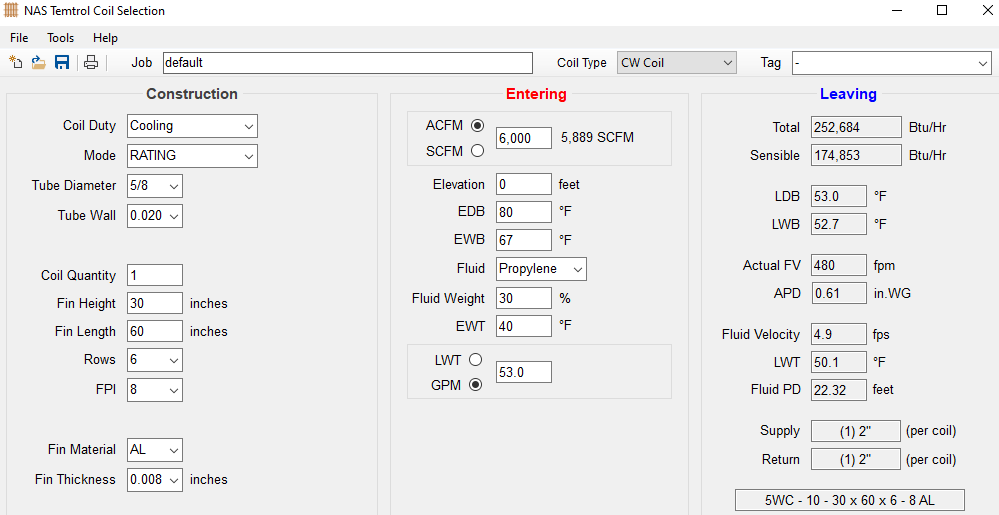Heat Transfer Equation of coil with antifreeze
Does anyone know the correct heat transfer equation for a cooling coil with 30% propylene glycol at 40 degrees inlet? There seems to be a popular equation many people use which only takes into account GPM, DT, Density, and specific heat. I am certain this equation is for "heat carrying capacity" not heat transfer rate - which are very different. It completely ignores viscosity, thermal conductivity, and diffusivity, surface film, fouling, and LMTD. You can see from my chart, that the capacity (compared with water) only decreases by 6%, while the conductivity decreases by 27% and diffusivity -22% and viscosity increases 276%. I know there are a lot of theory smart people on this forum, hopefully someone can clarify. Thanks.

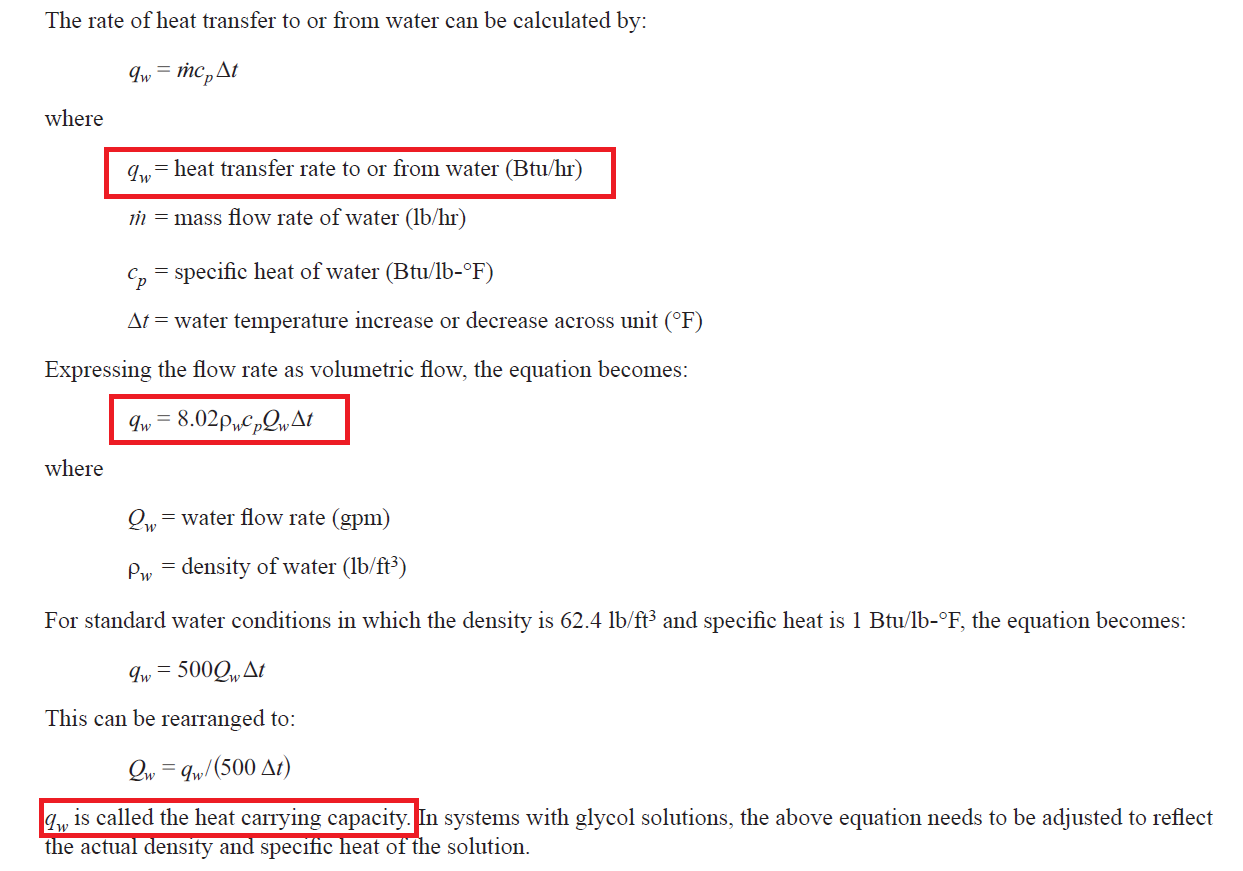
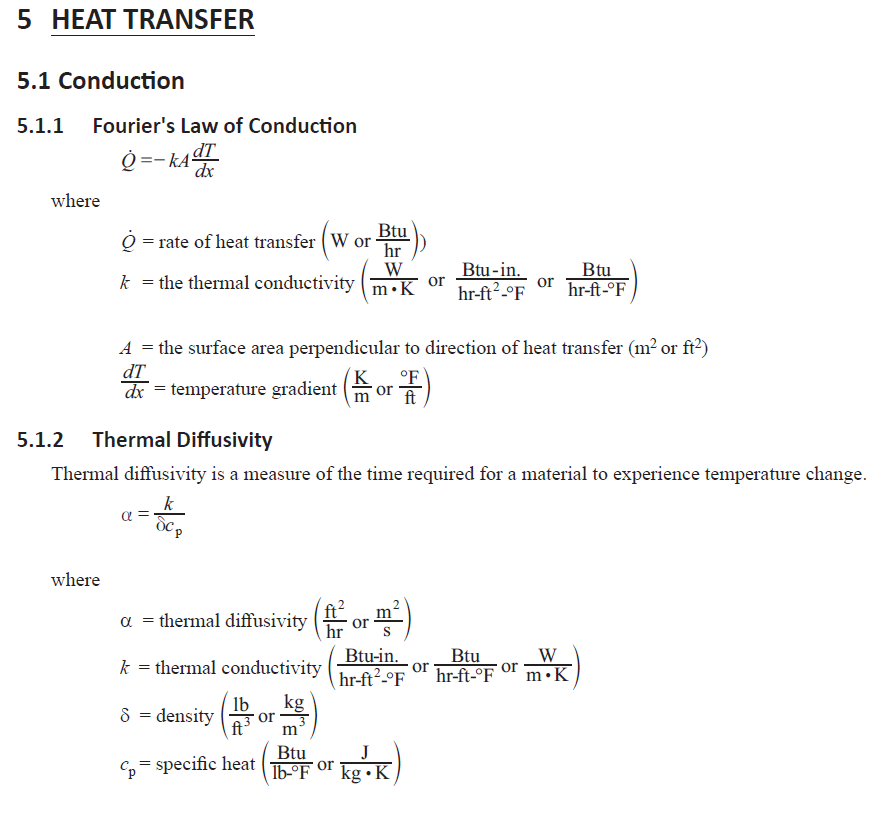
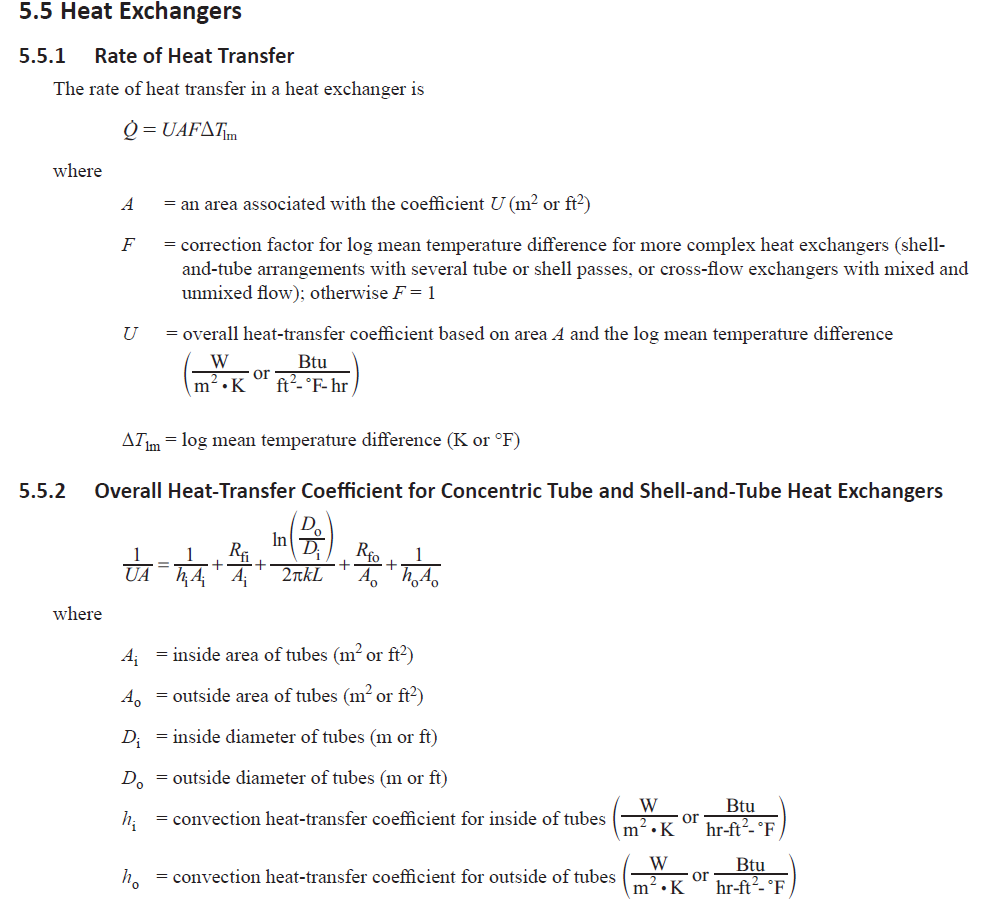
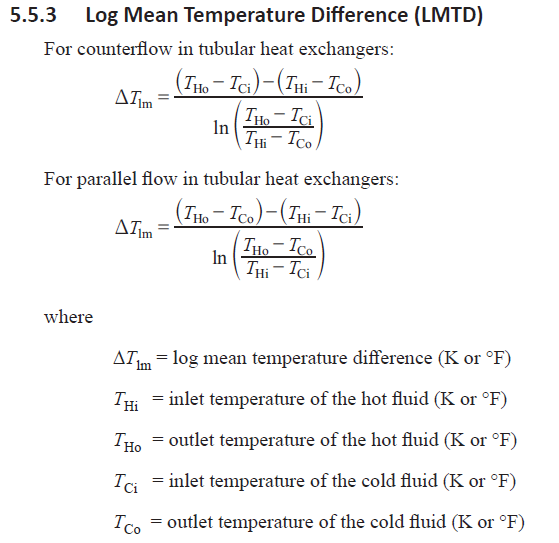
One example is this coil with pure water on a selection software tool.
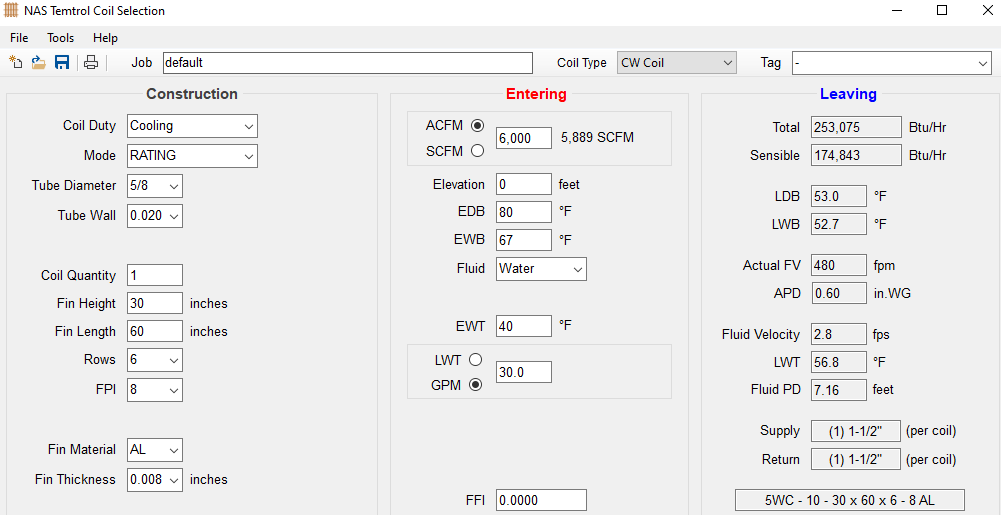
The same exact coil with 30% glycol shows a 28% reduction in heat transfer.
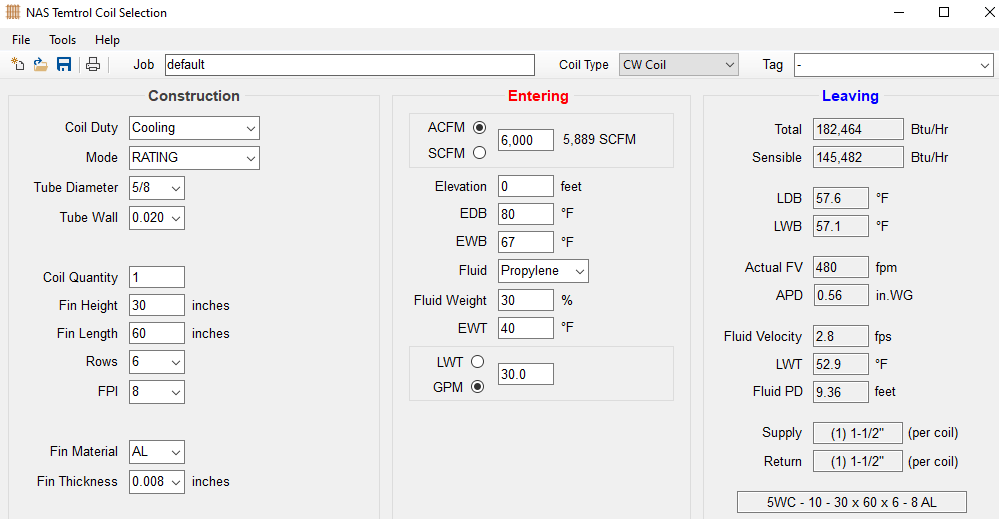
In order to achieve the same MBH, it requires an increase in flowrate by 76%
